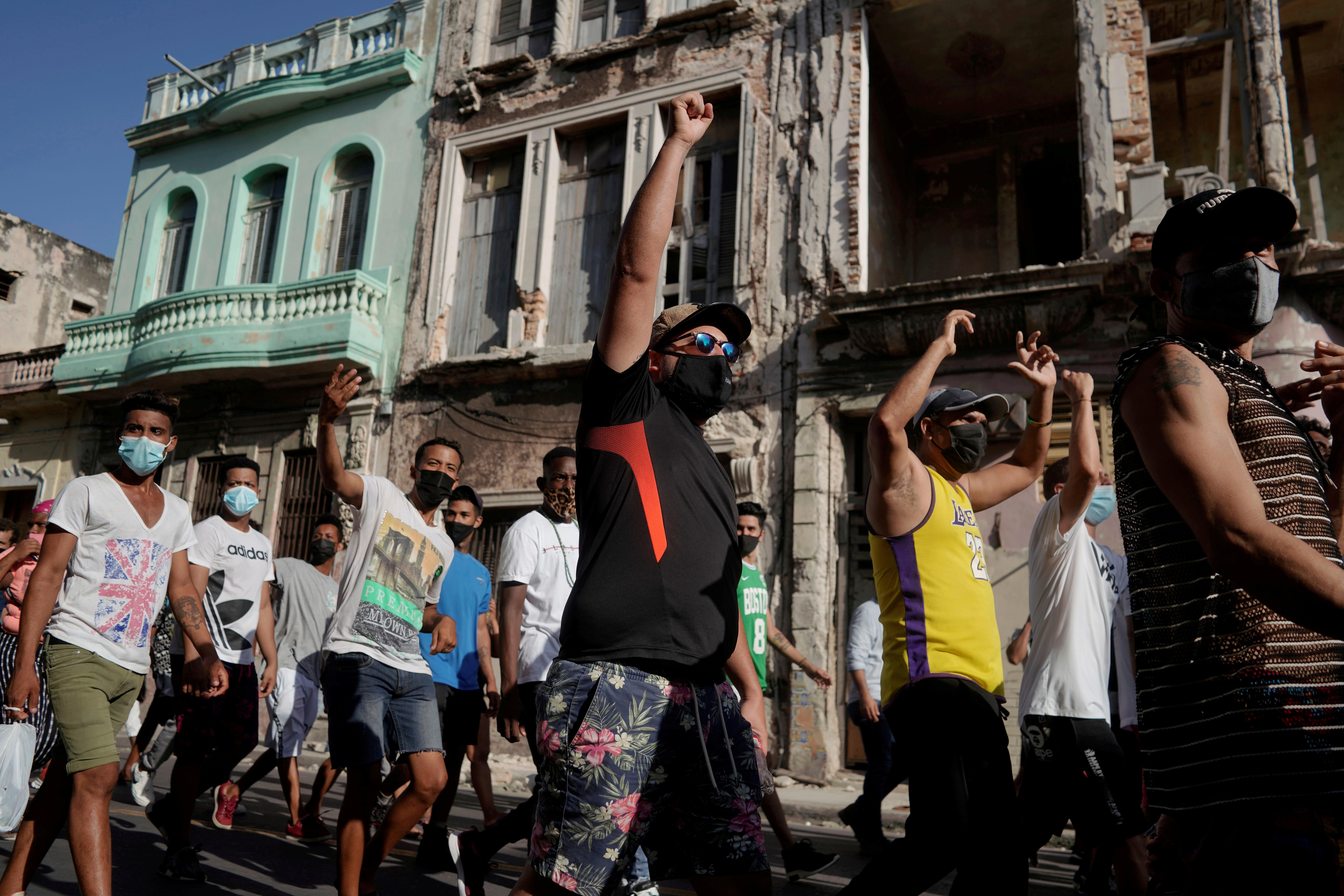Cuban protest. For months, Cuban activists and dissidents have been planning a fresh, island-wide, anti-government protest. Well, the day is November 15, and the stakes are high. The Cuban regime, which has refused to issue permits for any marches, says it will not tolerate any unrest, and has accused the US of being behind the demonstrations. Back in July, you might remember, Cuba witnessed the biggest anti-government protests in decades, as popular anger over shortages, poverty, and political repression boiled over into the streets. Since then some 1,200 people have been arrested, with roughly half of them languishing in jail while awaiting trial on charges of sedition or sabotage that carry sentences of up to 25 years. We're keeping an eye not only on what happens in Cuba, but also on how the Biden administration responds. The US president will be under immense pressure from the powerful Cuban-American constituency in Florida, as well as Republicans more broadly, to impose tougher sanctions on the island. But there's an argument that the interests of the Cuban people might be better served by doing just the opposite.
More from GZERO Media
Listen: Investors and business leaders alike are starting to realize they may have gotten Trump 2.0 wrong. It turns out President Trump actually meant what he said.
President Trump's volatile economic policies are roiling markets and scaring investors. Does he care? Ian Bremmer explains.
President Donald Trump talks to the media next to Tesla CEO Elon Musk, with a Tesla car in the background, at the White House on March 11, 2025.
Elon Musk may have a big day ahead. On Friday, according to the New York Times, he’ll be made privy to war plans for a US military conflict with China. But President Donald Trump has denied that Musk will be briefed on China during his visit.
Stranded passengers at Heathrow Terminal 5 in London on Friday, March 21, 2025.
President Donald Trump signed an executive order on Thursday stripping away much of the Department of Education, but he stopped short of dismantling it completely. On Friday, he announced that the federal student loan portfolio and the department’s “special needs” programs were being moved to other federal agencies.
The countdown is on! At noon on Sunday, Canadian Prime Minister Mark Carney is expected to dissolve parliament and send voters into an election campaign that promises to be one of the most consequential — and hotly contested — in recent history.
Indonesian activists are protesting a new law allowing active-duty military members to serve an expanded role in the civilian government — a move they warn could bring back the days of military repression under strongman leader Suharto.
Though European leaders have been excluded from Donald Trump’s plan to end the war in Ukraine, meetings on Thursday in Brussels and London aimed to demonstrate Europe’s continuing commitment to supply Ukraine with the weapons it needs to repel Russian invaders.
Have you stayed atop GZERO’s news coverage this week? Here’s your chance to prove it.
The BMW Foundation Herbert Quandt unites leaders and experts from business, politics, science, and civil society to tackle some of today's most pressing challenges. With our partners and a global network of over 2,600 members, we collaborate to advance solutions in our focus areas – energy transition and climate change, urbanization and infrastructure, and education and qualification. Learn more about how we create a positive dynamic that strengthens an innovative and responsible economy while also promoting an open-minded and future-proof society here.
